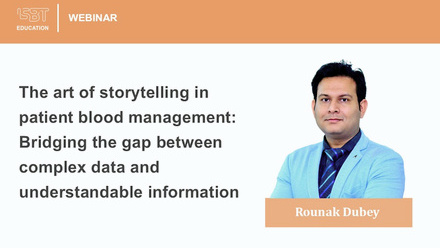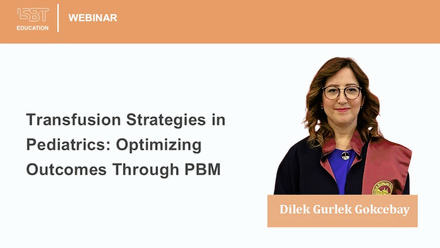Transfusion education for nurses and transfusion practitioners in Australia
ISBT Science Series, 2018
L. Bielby, D. Peterson, T. Spigiel
Abstract
Background
Transfusion risks and the principles and benefits of patient blood management (PBM) are well documented in the literature. One of the challenges is to ensure that all multidisciplinary team members working in these clinical areas are aware of the risks, benefits and principles, and undertake their practice accordingly.
Context
Nurses and transfusion practitioners need to have both knowledge and skills to undertake their roles safely and effectively. This is achieved predominantly through education and training across the continuum of the nursing career and is aligned with the practitioner's scope of practice and career path. It commences with acquisition of basic knowledge and development of competencies, through to the critical-thinking and leadership skills, required to implement transfusion and/or PBM practice improvement initiatives within a clinical department/health service. Patients and carers need to be informed of the risks, benefits and any available alternatives, and nurses play a key role providing this information to support them being active partners in decision-making as part of their care and treatment. There is a range of educational opportunities and delivery modes offered in Australia through:
- Undergraduate curricula.
- Continuing professional development.
- Postgraduate qualifications offered through Blood Matters/The University of Melbourne.
Conclusion
Education is fundamental to ensure that staff working in the area of transfusion/PBM have the knowledge and understanding to provide high-quality, effective and safe patient care. It is an ongoing process, requiring regular updates and reinforcement to keep pace with changes to reduce errors and risk and improve patient outcomes.






